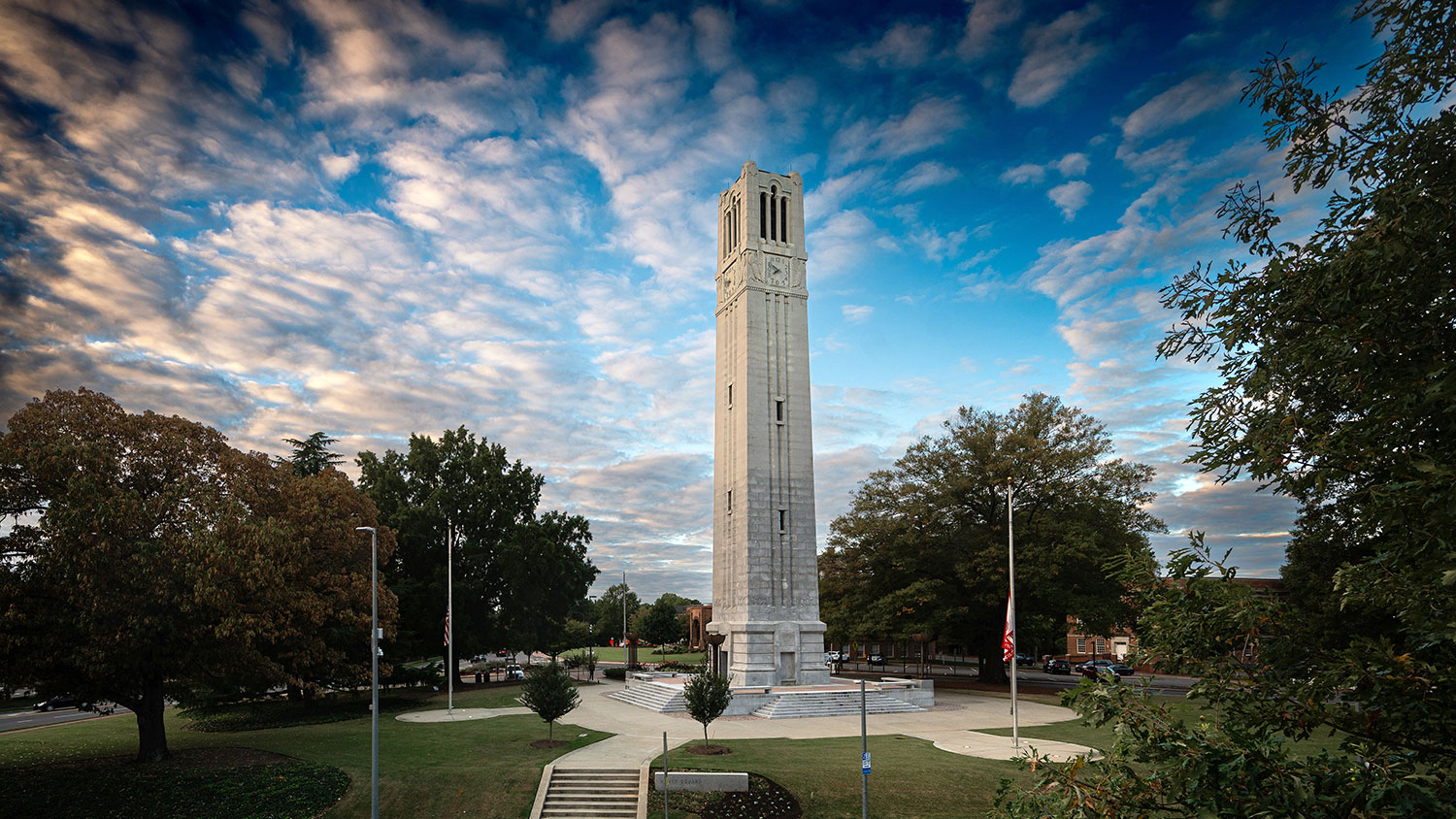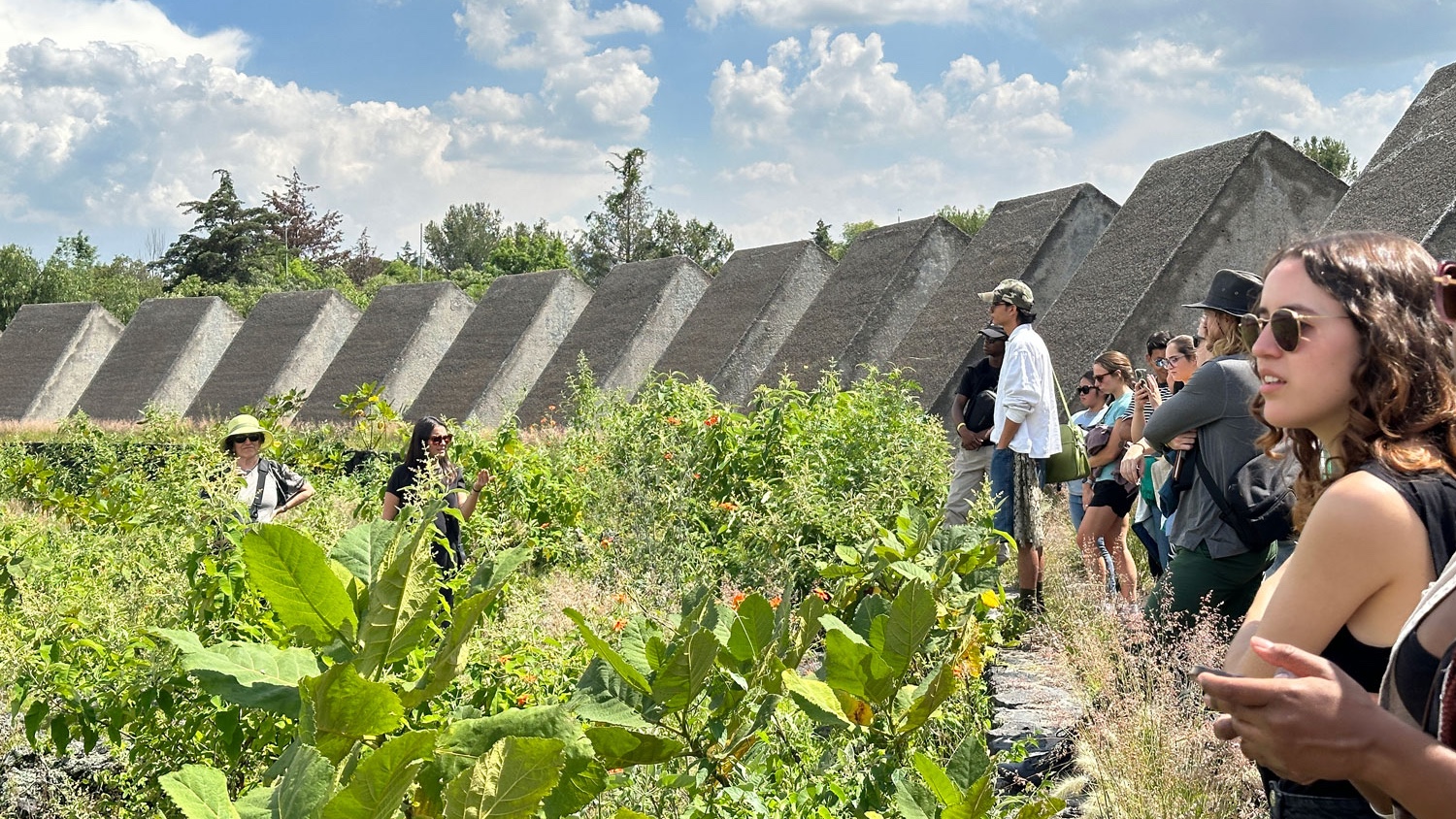Tell Me More: 7 Questions About Corporate and Foundation Relations
Tell Me More is a new NC State Giving series that provides easy-to-digest information about common philanthropy topics and organizations. Each story in this series is designed in a Q&A format.

In many ways, NC State — and institutions like it across the nation — is like a small town. Students, staff and faculty live, work and learn together seamlessly across campus.
Corporations and private or public foundations eager to access the resources and highly-educated students of NC State need to enter the small town. The best way to do that is through the “front door” of Corporate and Foundation Relations (CFR).
“Corporations and foundations as constituencies are important philanthropic partners, providing millions in support to enable the work of our faculty and students annually,” said Jim Broschart, associate vice chancellor for university development. “University Advancement’s Corporate and Foundation Relations team plays an important and central role in identifying partners, facilitating relationships, and stewarding these companies and foundations.”
At NC State, CFR is an office within University Advancement. The executive director of CFR is Samara Hannah, who was named to her position in February 2023. Her team aims to build relationships with businesses, their foundational arms and private foundations. The goal is to develop strategies to “connect the dots” between the goals of a collaborator or supporter and NC State’s.

To that end, CFR plays an important role in helping NC State achieve its philanthropic priorities.
In this Q&A, Hannah talks about CFR’s role at NC State and about her office’s strategies for partnering with corporations and foundations.
1. What does Corporate and Foundation Relations do?
Corporate and Foundation Relations brokers partnerships with companies in order to support students and student programs, as well as secure funding for research, faculty and campus spaces.
For example, many companies want to recruit talented young Wolfpack alumni. CFR assists by connecting these companies to ways they can invest in NC State. In the student support realm, these investments typically take the form of developing student-oriented learning opportunities such as experiential learning and research. In this way, CFR helps promote a company’s visibility as an employer of choice, as well as a strong partner with the university.
On the other hand, CFR works to find ways for companies to become established partners with NC State. This is done by connecting them with areas of interest that can then foster access to students, faculty, research and all things NC State.
CFR also connects with foundations. Foundations are entities designed to give away money with the intention of making a difference. CFR is able to work directly with a foundation to understand its unique goals and use that knowledge to tie it into existing NC State priorities or ideate how resources can be used to create new initiatives that support the priorities of both parties.
2. What sets Corporate and Foundation Relations apart from other aspects of University Advancement?
The main difference between Corporate and Foundation Relations and other units within University Advancement is that, unlike traditional fundraising arms, CFR’s primary goal is to build relationships and use them to find funding that supports common goals. These relationships are intended to be comprehensive and mutually beneficial.
Another unique characteristic of CFR is that it is centrally located. Many University Advancement departments are tied to a specific college. This centrality affords CFR the ability to see and understand the broad picture of campus priorities and plug interested corporations in with specific campus partners, achieving goals on both sides and expanding the opportunities across units to develop a campuswide relationship.
3. Who on campus does CFR interact with most often?
Most often, CFR will work through campus peers like development officers and other fundraising teams — as well as faculty and campus administrators — to understand the various initiatives in demand across campus. These can include categories for direct support of students like the Feed the Pack food pantry and scholarships, or support of colleges’ efforts like experiential learning or capstone project ideas.
CFR must remain in regular contact with the different groups who facilitate campus programs. When a corporation or foundation is interested in learning more about a specific research project or opportunity on campus, CFR will work to identify the proper campus partner and pass on the relationship to them. Many times, this effort can include brainstorming with the corporate partner to arrive at a previously unthought of opportunity that can be of great benefit for both parties.
4. Who off campus does CFR interact with most often?
CFR’s primary objective is to foster comprehensive and mutually beneficial relationships with major corporate and foundation partners. CFR often spends time with companies which may or may not be as well known to our students, but which are developing technology and/or doing business that pairs well with their areas of study. This opens the door for students to have a greater array of options for employment post graduation.
For example, say there is a bank interested in partnering with NC State’s Poole College of Management in hopes of attracting business students for their workforce. It can be possible for the bank to narrow on this one goal and overlook other opportunities on campus. After meeting with the bank, CFR can recommend the College of Engineering’s Department of Computer Science for cybersecurity professionals or the Data Science Academy for AI and big data analytics expertise. Suddenly, the bank can be plugged into a number of NC State outlets and draw a more diverse set of educated young professionals.
5. What impact does the work of CFR have on NC State students?
The vast majority of students who attend NC State do so with the intention of entering their chosen industry field upon graduating. CFR helps support these students by developing relationships with employers who are seeking NC State to find specialized industry talent.
For example, say a food processing company is interested in securing students from the College of Agriculture and Life Sciences. CFR can support these students by negotiating with the company to invest in NC State by exposing them to real-world job experience while still in school — commonly referred to as experiential learning. CFR also helps unveil a list of possible resources that employers could offer students when they are still in school, like funding mental health programs, restocking the Career Center’s business wardrobe and even creating scholarships.
In this way, CFR is able to impact students by advocating on their behalf to potential employers. This is mutually beneficial because employers get exposure with well-rounded and experienced students and students get valuable resources and connections for their industries.

6. What sort of foundations does CFR connect with most often? (personal or corporate-tied?)
The CFR team connects most often with corporate-tied and private foundations. Personal foundations are typically connected with an NC State development officer or other University Advancement colleagues that work with individuals.
The foundations that CFR works with are generally on the regional or national scale. Because of their nature, foundations have a very deliberate structure, meaning that their points of contact with a university need to be very specific. CFR helps by facilitating a point of entry to NC State for these foundations and pointing their leaders to the areas where they can make the biggest impact.
7. How important is Centennial Campus, with its melting pot of businesses, students and faculty, to the work of CFR?
Centennial Campus is proof of the world of possibilities for a symbiotic relationship between universities and corporations, dissolving the line between education and industry. Industry becomes a hotbed for innovation and innovation is born out of education. Corporations on Centennial Campus and NC State can rely on each other to develop technology and the future of the workforce.
CFR’s role in this sphere is to work with the Office of Partnerships to leverage existing and potential relationships to expand the benefits for NC State and our industry partners. CFR relies on collaborations with colleagues in other units who also work closely with corporate partnerships.
Corporate and Foundation Relations is vital to forming comprehensive relationships with the companies and foundation arms that support NC State, its students and its priorities. Through a deeper and greater variety of corporate partnerships, NC State is able to better prepare its students in their educational journeys, support faculty, expand facilities, fuel economic growth in North Carolina and around the world, and develop pointed plans for lasting impact.
If a company is looking to have a comprehensive relationship with NC State, the “front door” of Corporate and Foundation Relations is the place to start. Through windows of exposure into all the different ways companies could be involved with NC State, CFR navigates both the funding and logistics questions of a company’s desires and facilitates the path forward.
Corporate and Foundation Relations is located in Winslow Hall on campus.
- Categories:


